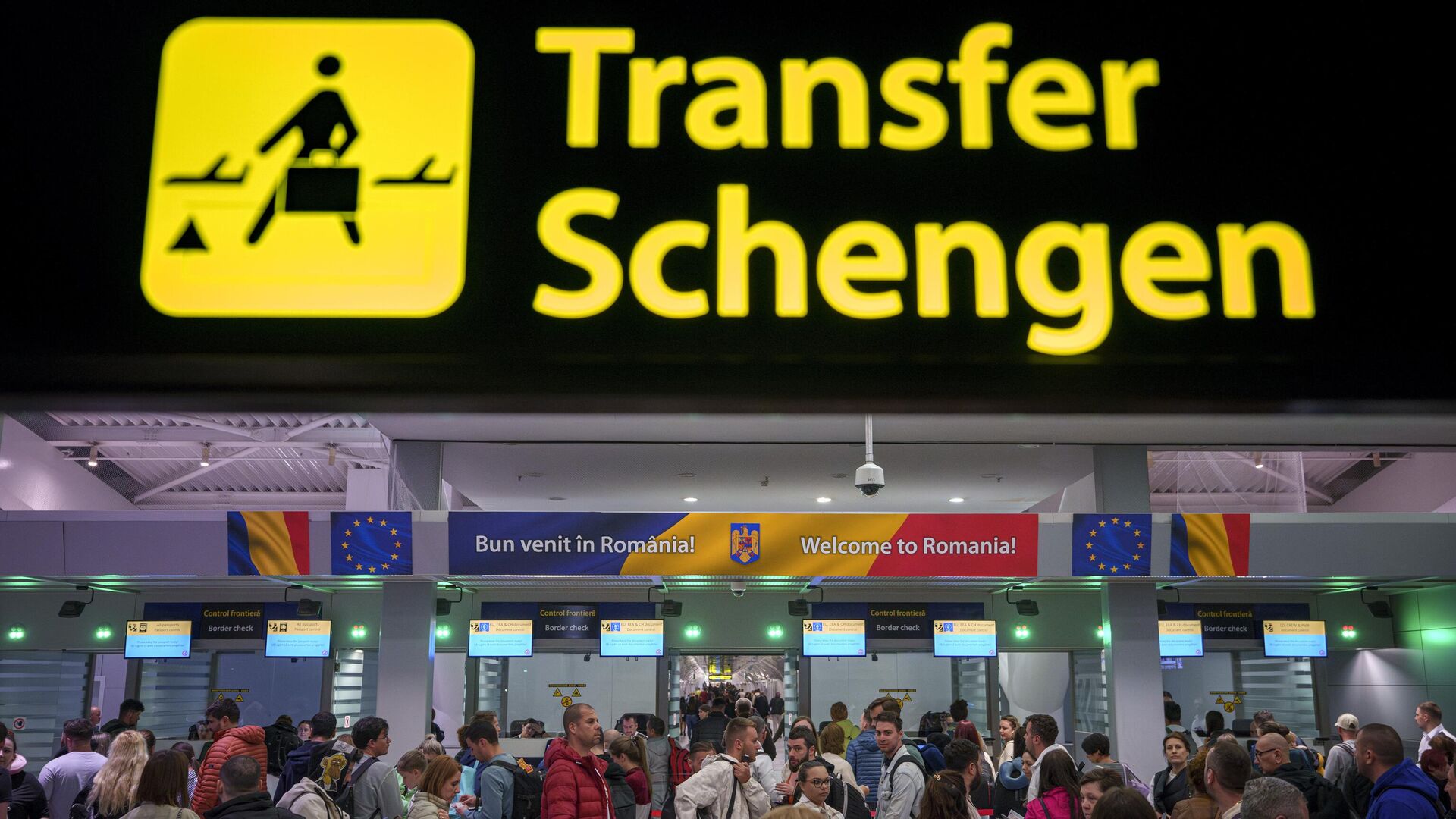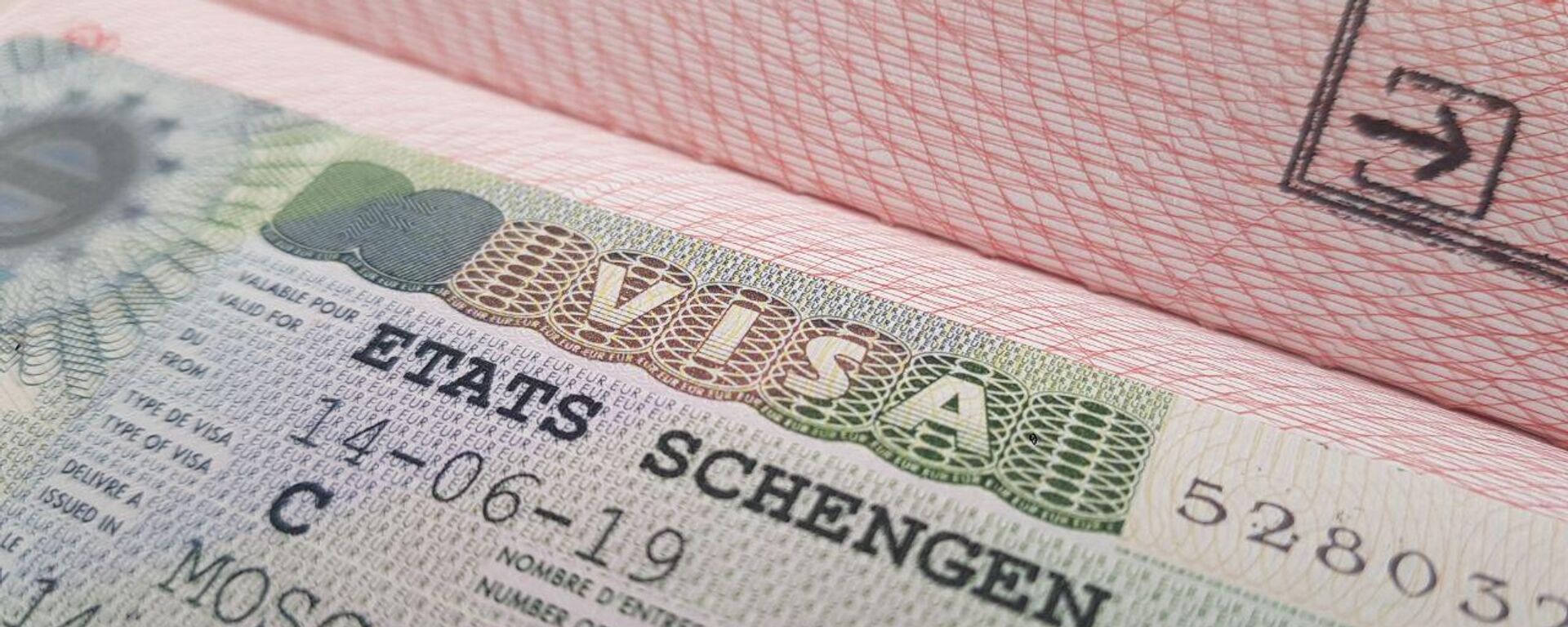https://en.sputniknews.africa/20240625/uk-europe-make-millions-by-rejecting-visas-while-africa-suffers-most-research-finds-1067211890.html
UK, Europe Make Millions by Rejecting Visas, While Africa Suffers Most, Research Finds
UK, Europe Make Millions by Rejecting Visas, While Africa Suffers Most, Research Finds
Sputnik Africa
In 2023, foreigners made 38.0 million visits to the UK and spent $37.6 billion, an increase of $5.6 billion over their spending in 2022, according to the UK... 25.06.2024, Sputnik Africa
2024-06-25T13:23+0200
2024-06-25T13:23+0200
2024-06-25T13:52+0200
united kingdom (uk)
international
visa
european union (eu)
european commission (ec)
europe
ghana
nigeria
west africa
mali
https://cdn1.img.sputniknews.africa/img/07e8/06/19/1067214645_0:0:3072:1728_1920x0_80_0_0_1f54390884bb74dfa5a3bef4f16efe0b.jpg
The UK made £44 million last year from visa application fees for applications that were subsequently rejected, mostly from low- and middle-income countries. The EU made €130 million in a similar way, a study by the LAGO Collective, a research group focused on arts and migration, revealed.African visitors were disproportionately affected, with visa rejection rates ranging from 40% to 70%, according to the study. Through visa payments from Africans, Europe collected €54 million, or almost half of all payments.Moreover, the overall costs are projected to rise in 2024, as the standard application fee for a short-stay visitor visa in the UK increased from £100 (almost $127) to £115 (approx. $146) in October 2023, and the EU raised the cost of visas from €80 to €90 in June this year.The analysis also showed that in the UK, Algeria has the highest visa rejection rate at 71%, followed by Bangladesh at 53%, with Ghana, Pakistan, and Nigeria experiencing rejection rates between 30% and 46%.Last year, EU and Schengen countries received over 10.3 million applications for short-stay visas but only issued over 8.5 million visas, according to the European Commission data. Among residents of African countries who applied for visas, citizens of Guinea-Bissau, Ghana, and Mali received the most refusals: 51%, 47.5%, and 46.1%, respectively.Margaret Monyani, a senior migration researcher at the Institute for Security Studies, explained to Sputnik Africa in early May that this trend highlights how patterns of exploitation and control from colonial times continue to influence diplomatic and economic relations between African and European countries, particularly in terms of their visa policies.
https://en.sputniknews.africa/20240511/european-visa-policies-towards-african-applicants-legacy-of-colonialism-and-inequality-1066490234.html
united kingdom (uk)
europe
ghana
nigeria
west africa
mali
guinea-bissau
algeria
pakistan
asia
north africa
bangladesh
senegal
Sputnik Africa
feedback@sputniknews.com
+74956456601
MIA „Rossiya Segodnya“
2024
Christina Glazkova
https://cdn1.img.sputniknews.africa/img/07e7/0b/07/1063380906_0:0:673:674_100x100_80_0_0_79628b4d0cd9f29291a57aa13bbf9e7a.jpg
Christina Glazkova
https://cdn1.img.sputniknews.africa/img/07e7/0b/07/1063380906_0:0:673:674_100x100_80_0_0_79628b4d0cd9f29291a57aa13bbf9e7a.jpg
News
en_EN
Sputnik Africa
feedback@sputniknews.com
+74956456601
MIA „Rossiya Segodnya“
Sputnik Africa
feedback@sputniknews.com
+74956456601
MIA „Rossiya Segodnya“
Christina Glazkova
https://cdn1.img.sputniknews.africa/img/07e7/0b/07/1063380906_0:0:673:674_100x100_80_0_0_79628b4d0cd9f29291a57aa13bbf9e7a.jpg
united kingdom (uk), international, visa, european union (eu), european commission (ec), europe, ghana, nigeria, west africa, mali, guinea-bissau, algeria, pakistan, asia, north africa, bangladesh, senegal, tourism, justice, schengen visa
united kingdom (uk), international, visa, european union (eu), european commission (ec), europe, ghana, nigeria, west africa, mali, guinea-bissau, algeria, pakistan, asia, north africa, bangladesh, senegal, tourism, justice, schengen visa
UK, Europe Make Millions by Rejecting Visas, While Africa Suffers Most, Research Finds
13:23 25.06.2024 (Updated: 13:52 25.06.2024) Christina Glazkova
Writer / Editor
In 2023, foreigners made 38.0 million visits to the UK and spent $37.6 billion, an increase of $5.6 billion over their spending in 2022, according to the UK Office for National Statistics. However, millions of foreigners were denied visas, resulting in a loss for them and a gain for the UK.
The UK made £44 million last year from visa application fees for applications that were subsequently rejected, mostly from low- and middle-income countries. The EU made €130 million in a similar way, a
study by the LAGO Collective, a research group focused on arts and migration, revealed.
African visitors were disproportionately affected, with visa rejection rates ranging from 40% to 70%, according to the study. Through visa payments from
Africans, Europe collected €54 million, or almost half of all payments.
“Visa inequality has very tangible consequences and the world’s poorest pay the price,” Marta Foresti, the founder of LAGO, was quoted as saying.
Moreover, the overall
costs are projected to rise in 2024, as the standard application fee for a short-stay visitor visa in the
UK increased from £100 (almost $127) to £115 (approx. $146) in October 2023, and the EU raised the cost of visas from €80 to €90 in June this year.
The analysis also showed that in the UK, Algeria has the highest visa rejection rate at 71%, followed by Bangladesh at 53%, with Ghana, Pakistan, and Nigeria experiencing rejection rates between 30% and 46%.
Last year, EU and Schengen countries received over 10.3 million applications for short-stay visas but only issued over 8.5 million visas, according to the European Commission
data. Among residents of African countries who applied for visas, citizens of
Guinea-Bissau,
Ghana, and Mali received the most refusals: 51%, 47.5%, and 46.1%, respectively.
Margaret Monyani, a senior migration researcher at the Institute for Security Studies, explained to Sputnik Africa in early May that this trend highlights how patterns of exploitation and control from colonial times continue to influence diplomatic and economic relations between African and European countries, particularly in terms of their visa policies.



